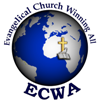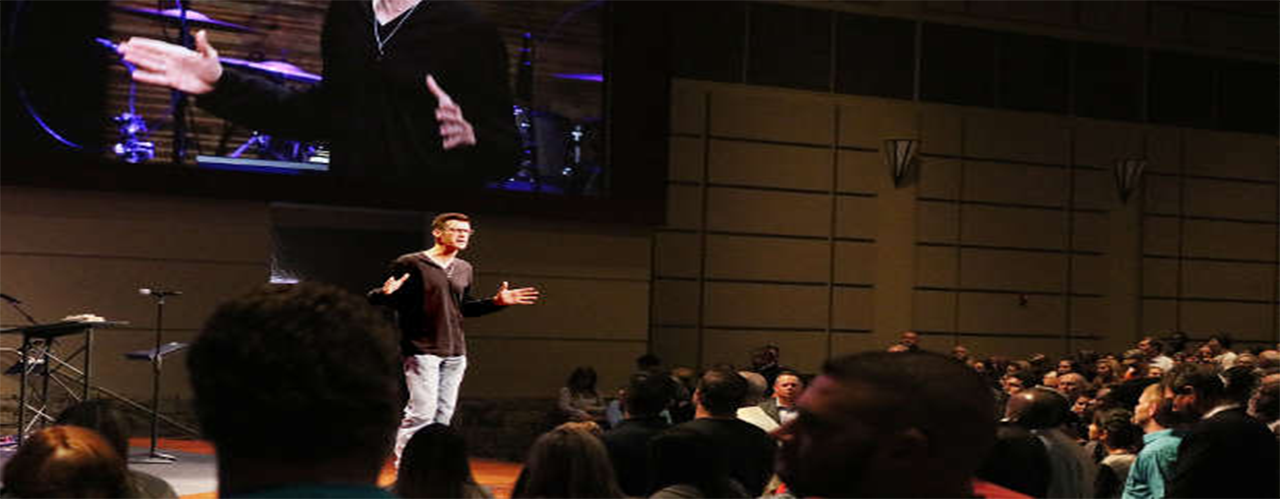Jay Lowder, founder of Jay Lowder Harvest Ministries, shares the gospel with multitudes of people during a four-day evangelistic gathering at Sagemont Church in Houston, Texas. (Jay Lowder Ministries)
"Mass evangelism doesn't work in today's culture."
I have heard or read this statement countless times. It is the exact statement people were making decades ago as the then-unknown evangelist by the name of Billy Graham was preaching on the sawdust trail in small tents across the U.S. Doubters were silenced when multitudes met Christ as a result of Mr. Graham's dedication to delivering the gospel in city after city all across the globe.
Not only has the act of evangelism been put out to pasture, so has the use of the office of the evangelist. While some like to talk about evangelism, the evidence proves that when all is said and done, that is all there is—talk with little to no action.
During a time in history when there has never been more uncertainty, moral and spiritual erosion, and quest for truth, it is unnerving that Jesus mandate to "go and tell" has been so grossly dismissed.
While many churches wait for the unsaved to come to church, the unsaved are waiting for the church to come to them. The real issue is not that non-believers are unwilling to believe the gospel; the problem is that believers are unwilling to share it and churches are reluctant to deploy those whose spiritual gift is evangelism.
New Testament evangelism takes on numerous forms and should be done by individuals on a one-on-one basis as well in large gatherings. Proof of the need for mass outreach is found in Acts chapter 2 where the original converts to Christianity were not the result of small groups: rather they were reached by large scale public evangelism. Peter preached the Good News, 3,000 received Christ, and the church was launched.
The office of the evangelist is found in Ephesians 4:11-12 and is a specific gift given to the church by Christ. He never gives any gift unless it is a needed one; therefore, it is safe to say this gift should be utilized.
While many do not understand the benefits of using those with the specific calling of evangelism, the Bible gives abundant examples. Evangelists fulfill numerous roles such as training and encouraging the church to bring the unsaved to Christ, calling believers to repentance, and uniting denominations. Additionally, evangelists possess a unique anointing to proclaim the salvation message to others who have yet to trust Christ.
A number of books have been written and formulas have been given with the best way to reach current generations for Christ. While many of these programs have merit, Jesus isn't confined to men's methodology—He is the same today as He was yesterday or will be tomorrow. Christ has ordained to seek and save many through the gift of the evangelist, which He has placed on certain individuals to aid in His harvest.
I am a full-time evangelist and have been for more than 20 years. I also know several people who also have been anointed with this gift and are in full-time evangelistic ministry. All of us could give numerous examples of God transforming churches and entire cities that prove evangelism is not dead.
Just last week, I was in a megachurch in the metropolitan city of Houston, Texas. In four days, more than 400 individuals from the community made commitments to Christ and multitudes were baptized. This is astonishing considering reports continue to show a decline in church attendance and baptisms.
Crusade evangelism still works … not just in the small cities and churches but the larger ones as well.
God's purpose is to merge the gifts of the evangelist and the church to synchronize together for the edification, strengthening and building of the church. For both to attain their mission, they cannot function independently of each other: like an eagle with clipped wings, they become vulnerable and unable to reach intended heights.
Pastors tend to, understandably, look inward at their congregations, while evangelists tend to look outward at the community. But when both are looking at the cross, they can move forward in an even greater way with fulfilling God's call.
When combined, the church becomes spiritually combustible: people are inspired, the church is strengthened, and believers become soul conscious and reignited in their mission. Often, the God grieving divisions and jealousies that exist between churches is broken down through partnering to evangelize the community.
Often, the best way to witness the supernatural is to run straight toward what many others are running from and do what most are not willing to do. In many cases this may be putting a focus back on God's call to do the work of an evangelist and use the office of it.
The need has never been greater.
Jay Lowder is an evangelist and founder of Jay Lowder Harvest Ministries.

